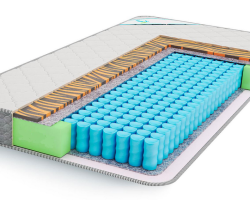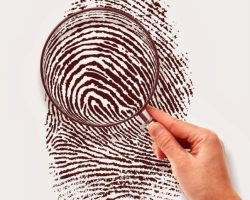The endocrine system is a complex structure of our body. It consists of different glands that produce hormones.
Content
- What is the effect of the endocrine system on the human body: what is it, work
- The structure of the internal endocrine system of the body in adults and children: device and functions
- Hormones of the endocrine system: features of their production, the role of hypothalamus
- Endocrine hormones secreted by the hypothalamus
- Internal endocrine hormones that the pineal gland release: physiology
- The endocrine system includes hormones that are secreted by the pituitary gland
- Endocrine system in the human body: thyroid hormones
- Hormones of the internal endocrine system secreted by parathyroid glands
- Endocrine system: hormones secreted by thymus
- Pronounced functions of the endocrine system: hormones that the pancreas secrete
- Endocrine system: hormones secreted by the adrenal glands
- Hormones of the endocrine system in women produced by the ovaries
- Endocrine system: hormones secreted by testicles in men
- Diseases, disorders of the endocrine system: treatment of problems
- Video: Endocrine system. Secrets of anatomy
- Video: Endocrine system. Hormones. Biology CT, exam
- Video: Introduction to the endocrine system
There are many different systems and organs in the human body. All of them are of great importance for life. This is the endocrine system.
Read on our website another article on the topic: "The anatomical structure of the gastrointestinal tract of a person". You will find in it a scheme, functions, digestive tract, description.
What organs belong to the endocrine system? How is she arranged? How does it function? You will find answers to these and other questions in this article. Read further.
What is the effect of the endocrine system on the human body: what is it, work

The endocrine system of the human body consists of endocrine glands that produce hormones that transmit information between organs. What is the role and what is the operation of this system? What is the effect of the endocrine system on the human body?
- It is hormones of the thyroid gland, pituitary gland, adrenal glands, ovaries, pancreas and pineal gland, determine your health, mood and appearance.
- If your hormonal balance is broken, you begin to feel worse and get sick.
- The endocrine system consists of endocrine glands that are responsible for the production of hormones. This is a control system consisting of a pituitary gland, thyroid, parathyroid, pancreas, adrenal glands and ovaries in women and testicles in men.
It is worth knowing: Both the excess and lack of hormones violate homeostasis - the internal balance of the body.
How much and what hormone our body needs, the command center decides, that is, pituitary gland controlled by a hypothalamus. These organs receive information about the reserves of hormones and their deficiency. The hypothalamus decides whether the number of hormones is enough. If one of them is absent, he orders the pituitary gland to begin to highlight the stimulating hormone, which will stimulate a specific gland to work more diligent. If something is too much, hypothalamic-pituitary system He speaks "stop".
The structure of the internal endocrine system of the body in adults and children: device and functions
The endocrine system of the body in adults and children is an important system that distinguishes hormones. They act as messengers - provide a connection between individual organs. Here is the structure and structure of the internal endocrine system of the body in adults and children:

If this system works normally, the whole body functions harmoniously. When the balance of the system is broken, the mood falls, we look worse and begin to get sick. Here are the main functions of the endocrine system:
- When the endocrine glands produce hormones, they release them into the blood for a particular purpose: to deliver information and commands to certain cells, tissues and organs.
- The hormones of the pituitary gland are shy and pancreas, adrenal glands and ovaries, what to do.
- After that, each of these organs begins to produce their own hormones, which are directed to where they are necessary.
- For example, during severe stress, adrenal glands send adrenaline to the heart, which mobilizes us for training.
When the transmission of information is delayed, the body cannot respond to a changing situation.
Hormones of the endocrine system: features of their production, the role of hypothalamus
The hormones of the endocrine system are produced by endocrine glands and then enter the bloodstream. The features of their development are that they affect cells equipped with a certain receptor. Some of these substances are also produced by cells of the immune, nervous system and many other organs.
The role of a hypothalamus in hormonal regulation:
- Hypotalamus - the lower part of the brain where liberins and statins are synthesized, hormones affecting the pituitary gland plays an important role in hormonal regulation.
- The pituitary gland is a tiny iron in the center of the skull, which connects to the hypothalamus.
- The nervous part of the pituitary gland is considered part of the hypothalamus, since it stores two hormones produced by the nuclei of the hypothalamus - vasopressin and oxytocin.
- Vasopressin controls the water supply and prevents its excessive excretion in the urine.
- Oxytocin, on the contrary, causes uterine contractions during childbirth and orgasm, supports the outflow of milk in nursing women and arouses protective instincts.
As mentioned above, the endocrine system consists of several glands. Each of them distinguishes its hormones. Read further.
Endocrine hormones secreted by the hypothalamus

Liberins are realizing hormones, stimulate the secretion of the hypothalamus:
- Somatoliberin - releases growth hormone
- Corticoliberin - releases corticotropin
- Gonadoliberin - affects the secretion of gonadotropins (FSG and LH)
- Tireoliberin - affects the secretion of thyroidropine
- Statins are endocrine hormones that suppress the secretion of hormones with a pituitary gland.
- Somatostatin - suppresses the release of the hormone of growth and thyroidropine, dopamine, prolactin, as well as thyroidropin.
Kisspeptin-affects puberty, menstrual violations, fertility, plays a role in suppressing the development of tumors, but still remains a rather mysterious substance. It is very likely that in the next few years new reports will appear about the effect of Kisspeptin on the human body.
Internal endocrine hormones that the pineal gland release: physiology
The pineal gland is an unpaired medium -sized structure. This iron got this name, as it looks like a pine cone. The physiology of the pivotal body is that it is part of the epithalamus and is between laterally located thalamic bodies and behind the habenucular adhesion. Here are internal endocrine hormones that the pineal gland emit:
- Melatonin (sleep hormone) - participates in the regulation of the circadian rhythm of sleep and wakefulness, preparing the body for bedtime after dark.
Further even more useful information.
The endocrine system includes hormones that are secreted by the pituitary gland
Term "hormone" comes from the ancient Greek word " hormeo " -move, excite. In 1905, the English physiologist Ernest Starling first used this name for endocrine products. He conducted studies aimed at proof of the existence of substances in the body that control many life processes.
The endocrine system also includes hormones that are secreted by the pituitary gland:
- Somatotropin (growth hormone) - in a developing organism, it is responsible for tissue growth, and in a mature organism it is responsible - for their regeneration
- Prolactin - regulates the sexual cycle, supports pregnancy and stimulates mammary glands to produce milk
- Thyroidropine (TSH) - stimulates the thyroid gland to produce its own hormones
- Thyroid corticotropin (ACTH) - stimulates the production of the adrenal glands of their hormones
- Follicle -stimulating hormones (FSH) - control the maturation of eggs in women, and in men - the production of luteinizing hormone sperm (LH)
- Luteinizing hormone in women - causes ovulation
- Melanotropin in men - secrete testosterone in testicles, as well as in women and men, stimulates pigment cells for the synthesis of melanin, skin pigment.
It is worth noting that the first hormone was allocated in 1895 by the Krakow physiologist prof. Napoleon Tsibulsky (along with Shimonovich). He discovered a substance secreted by the adrenal glands, which is now called adrenaline.
Endocrine system in the human body: thyroid hormones

The thyroid gland in the human body is the structure of the endocrine system that stores iodine and emits iodine -containing hormones:
Triiodotironin (T3) and thyroxine (T4):
- Determine the correct course of many processes in the body
- Regulate body temperature and metabolism
- Participate in the synthesis of vitamins
- Stimulate the development of the skeleton and nervous system in the fetus and in early childhood
- Thanks to them, a person has a good mood, we are interested in the opposite gender
- The appearance of the skin and hair depends
Thyroxine affects the formation of subcutaneous fat. If the thyroid gland does not work well, you can suffer from insomnia, increased sweating or rapid heartbeat. With hypothyroidism, a person experiences fatigue, hypersensitivity to cold, hair becomes brittle and weak. Calcitonin reduces the concentration of calcium in the blood, linking its excess in the bones and limiting absorption in the small intestine.
Hormones of the internal endocrine system secreted by parathyroid glands
Parachite glands are several small structures that are located along the posterior wall of the thyroid gland. Here are the hormones of the internal endocrine system secreted by this gland:
- Paratyroid hormone - participates in calcium metabolism. Increases blood calcium, if it is too low, releasing it from bones and teeth.
Below are even more information about thyroid hormones. Read further.
Endocrine system: hormones secreted by thymus
Timus is the lymphoepithelial organ of human lymphopoiesis and many species of animals in which the maturation, differentiation and immunological “training” of T-cells of the immune system occurs. This is a fork iron. He plays a large role in the endocrine system. Here are the hormones secreted by Timus:
- Timosine - affects the body's immunity. Its secretion is stimulated by thyroid hormones.
The thymus gland gradually disappears after puberty.
Pronounced functions of the endocrine system: hormones that the pancreas secrete
The pancreas is the structure of the digestive tract. It has external spray and internal pronounced functions. The endocrine system cannot exist without a pancreas, as well as without any other. It is also an important body for the digestive tract. Here are the hormones that the pancreas secrete:
- Insulin - reduces the concentration of glucose in the blood, allowing it to penetrate the cells and accumulate in the liver. Insulin also participates in the transformation of proteins and fats.
- Glucagon - acts against insulin, increasing the level of glucose in the blood, which prevents hypoglycemia.
Below you will find information about the hormones of the adrenal glands. Read further.
Endocrine system: hormones secreted by the adrenal glands

The adrenal glands are paired endocrine glands. Important structures in this system. Are located on top of the kidneys. Hormones secreted by the adrenal glands:
- Adrenaline and Norepinephrine - prepare the body for increased physical and mental efforts in situations requiring a quick reaction. For example, they accelerate the frequency of heart contractions, improve the blood supply to the muscles, increase the level of glucose in the blood, expand bronchi and pupils. Their concentration increases during stress.
- Cortisol - Weakens the activity of the immune system, has anti -inflammatory properties, increases blood glucose. Enhances the effect of adrenaline and norepinephrine under stress.
- Dehydropiandrosterone (DGEA) - “extinguishes” the body's reaction to stress, has antidepressant properties, accelerates fat metabolism, suppresses appetite, and positively affects the mind and appearance of the skin.
- Aldosterone - regulates the water and electrolyte balance of the body. He takes care of maintaining the proper level of sodium and potassium.
The endocrine system also produces sex hormones. Read further.
Hormones of the endocrine system in women produced by the ovaries
In women, the reproductive system produces hormones. They affect youth, the appearance and development of pregnancy, the regulation of menstruation, etc. Here are hormones of the endocrine system in women produced by the ovaries:
- EstradiolFormed from the predecessor of testosterone.
- Progesterone - Prepares the uterus for implantation into its cavity by a fertilized egg, supports pregnancy (prevents premature uterine contractions), and suppresses the growth of the endometrium under the influence of estrogens. In addition, the responsible for the development of the typically female structure of the body, the regulation of the menstrual cycle, the development of eggs, the effect on sexual desire and appearance of the skin.
These hormones are necessary to prepare the uterus for menstruation.
Endocrine system: hormones secreted by testicles in men
Representatives of the stronger sex have their own hormones of the endocrine system, necessary for the operation of the reproductive system and not only. Hair growth on the body, sexual function and much more depends on them. Here are the hormones secreted by testicles in men:
- Androgens (mainly testosterone) - determine the development of typically male features - body shape, low voice, vegetation on the face, chest. The proper functioning of the male reproductive system depends on them and these substances increase sexual attraction.
Sex hormones do not appear in the body until puberty. In the early days of life, the breasts of both sexes often increase, and sometimes you can even see how milk flows from them. This is the effect of maternal estrogen, which, passing through the placenta during pregnancy, stimulate the development of the breast in a newborn. This condition passes after several or a dozen days, when excessive maternal hormones are released in the child.
Diseases, disorders of the endocrine system: treatment of problems
Endocrine diseases or disorders - a class of pathologies caused by a disorder of one or more glands of the endocrine system. They are based on hyperfunction, hypofunction or dysfunction of the endocrine glands.
Pathological processes are accompanied by a change in the hormonal system:
- Hormone production is violated - a decrease or increase
- Transportation and absorption slows down
- Incorrect structure from birth
- Increased stability against the functioning of hormones
Here are a few pathologists, their manifestation and symptoms:


To begin the treatment of problems associated with the endocrine system, the doctor first prescribes diagnostics. It includes such procedures and manipulations:
- MRI
- Ct
- Randigenography of the skull
- Ultrasound
- Blood test for sugar level
- Biochemistry of blood
- Glycosylated hemoglobin
- Glucose test
- Blood and urine test for hormones, etc.
What exactly to give you and what diagnostic measures are decided only by the doctor. He prescribes treatment on the basis of results. Hormonal drugs, diets, as well as complex drugs are mainly prescribed. Therefore, if you felt malaise or you have other unpleasant symptoms, urgently seek advice to the doctor. He will prescribe diagnostics, and then based on the results - treatment. Good luck!
Video: Endocrine system. Secrets of anatomy
Video: Endocrine system. Hormones. Biology CT, exam
Video: Introduction to the endocrine system
Read on the topic:
- Anatomy - extrapyramidal motor system of the brain: structure
- Central nervous system (central nervous system) - anatomy: structure
- Human breathing system and exam - what a graduate needs to know: anatomy
- Anatomy - Human heart structure: signature scheme, photo, tables
- Human anatomy - internal organs on the left under the ribs, in front and back







